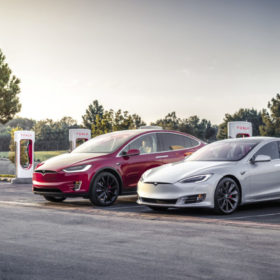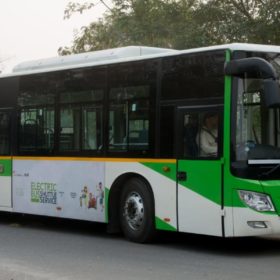Hydrogen-powered bicycles offer new electromobility concept
With the 200 hydrogen bikes offered to journalists and world leaders at the G7 summit in Biarritz, France proving popular, manufacturer Pragma Industries has received an order for 1,000 of them from Chilean president Sebastian Pinera. The company’s founder, Pierre Forté, wants the bike to have a societal impact in developing countries.
Dutch government treats 21 municipalities to smart EV chargers
Vehicle-to-grid functions could soon become increasingly important. While policymakers discuss the necessary regulations in other nations, the Netherlands government is motoring ahead with the technology.
IndianOil to produce non-lithium EV batteries
The state-run fossil fuel giant has partnered with an unnamed foreign start-up to produce electric vehicle batteries using raw materials easily available in India.
Australia shows the way forward for EVs in nations with vast distances
The Australian Renewable Energy Agency will contribute $15 million towards a planned nationwide network of ultra-fast charging stations that could show the way ahead for electromobility in India.
West Bengal could get 1.7 GW of solar but coal will reign for at least 30 years
A minister said an unnamed private investor had proposed an 800 MW solar project in the state on top of a 900 MW scheme being carried out with Japan. But the chairman of power giant NTPC said AI and digitization should be used to extend coal burning for decades to come.
IndianOil to invest $3.7bn in green energy projects
The fossil fuel giant announced the plan in its latest annual results. The company envisages rolling out electric vehicle chargers at its petrol and diesel stations.
Lithium-ion batteries still set for US tariffs on September 1
The energy storage market is set to be the latest affected by Trump’s trade war as lithium-ion batteries were excluded from the group of Chinese imports for which the U.S. president announced tariffs would be delayed until December 15.
Car industry copper demand to surge 250% due to EVs
By considering use of the metal in charging infrastructure, analyst Wood Mackenzie has found higher demand from the mobility sector than is the case if only the volume of the material required for vehicle construction is examined.
5595 electric buses sanctioned under FAME II Scheme
Of these, 5095 e-buses have been allocated to 64 cities for intracity operation, 400 for inter-city operation and 100 for last-mile connectivity to Delhi Metro Rail Corporation.
Plans to install 100 EV charging stations in Noida
Energy Efficiency Services Limited will provide the funding with authorities in the planned city offering up sites and electricity connections under an agreement announced yesterday.













